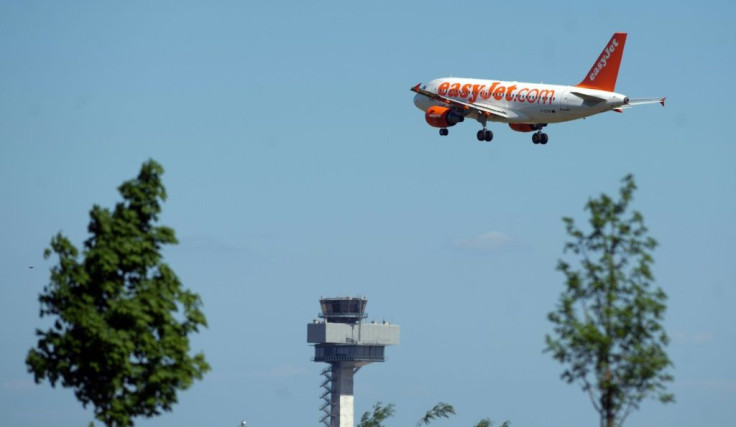Is EasyJet Just Greenwashing? Budget Carrier Pledging To Offset Emissions

EasyJet Airline Company Ltd., the British-based budget airline, said it plans to become the world's first “net zero carbon” airline by offsetting carbon emissions.
The carrier, which posted a 26% plunge in pre-tax profits for fiscal 2019 although annual revenues climbed 8.3%, also said it will re-introduce its package holiday business, months after the collapse of travel company giant Thomas Cook Group..
EasyJet said it will immediately commence offsetting emissions from its 331-plane fleet, to become carbon-neutral.
“From today onwards EasyJet will make all flights net zero carbon,” the airline stated. “By offsetting the carbon emissions from the fuel used on the flights across our whole network we will become the world’s first major net zero carbon airline.”
Carbon offsetting, EasyJet conceded, is an “interim measure and we will continue the push to reinvent aviation for the long-term, including development of sustainable fuel and electric flying.”
Offsetting carbon emissions from the fuel used for all its flights is expected to cost the company about 25 million pounds sterling for the financial year ending September 2020.
Through carbon offsetting, EasyJet explained that it will “invest in projects to reduce carbon and carbon equivalents from the atmosphere.”
In addition, EasyJet said it “will compensate for every ton of CO2 emitted from fuel used for its flights, by ensuring there is one ton less in the atmosphere – whether by reducing CO2 by physically removing it from the air (e.g. by planting more trees) or by avoiding the release of additional CO2.”
Other European airlines also plan to go green. International Airlines Group, which owns British Airways and Aer Lingus, has promised to eliminate or offset all carbon emissions from its planes by 2050.
However, some analysts and environmental activists are skeptical about the airline industry’s plans to run cleaner flights.
Greenpeace called EasyJet’s program a “greenwash,” and suggested the best way to reduce carbon emissions is simply by cutting the number of flights.
“This is jumbo-size greenwash from Easyjet,’’ Greenpeace U.K.’s chief scientist Doug Parr said. “There’s nothing zero-carbon about their airplanes.’’
A recent report by Citi analysts, led by Mark Manduca, raised questions about the usefulness of carbon-offsetting.
“We note that a typical tree can absorb as much as 25 kilograms of carbon dioxide per year, i.e., 1 ton of carbon dioxide through a typical lifespan of 40 years -- an amount and contribution that would struggle to offset just one business-class long-haul flight,” said Citi.
Similarly, the European Federation for Transport and Environment criticized EasyJet, saying that “decades of airlines’ unchecked emissions growth shows governments need to step up and regulate aviation’s climate impact by ending the sector’s tax privileges and mandating clean fuels.”
In response to the criticism, EasyJet’s chief executive Johan Lundgren told the BBC: "This is not a long-term solution, offsetting is not perfect. I don't think it's greenwashing, everyone recognizes that it works, but this is in addition to the fact that since 2000, we've reduced our carbon emissions by 30%."
Carbon dioxide emitted by airlines increased by 32% from 2013 to 2018, the International Council on Clean Transportation said. Moreover, domestic flights in the U.S. and China account for one-fourth of all aviation emissions. The U.S, China and EU are responsible for 55% of all emissions.
The aviation industry accounts for only about 2% of all global emissions.
In announcing the holiday package plans, EasyJet noted the sector is worth billions.
"The total European package holidays market is worth around £61 billion [$78.79 billion] per year. The U.K. alone is a £13 billion [$16.79] market and has grown by 6% annually,” EasyJet stated. "The way that customers are taking holidays is changing and we know customers want holidays with various durations and not the traditional seven and 14 nights.”
Some 20 million people currently use EasyJet to fly to Europe, but only 500,000 arrange their holiday accommodations directly through the airliner. Thus, the demise of Thomas Cook opened up new market possibilities for EasyJet.
Julie Palmer, regional partner at business consultancy Begbies Traynor, told BBC Easyjet “has been picking at the bones of other airlines who have suffered at the hands of falling demand.”
© Copyright IBTimes 2025. All rights reserved.





















